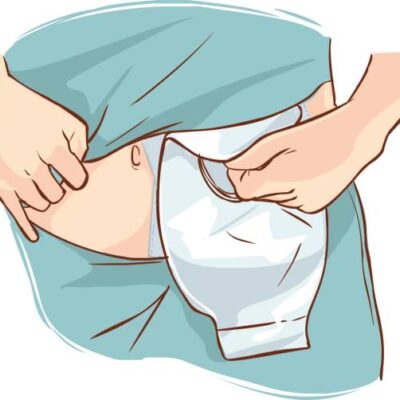Learn how to avoid common mistakes in wound care and promote optimal healing. Discover expert tips and techniques for proper wound management.
Introduction
When it comes to wound care, it is essential to approach it with utmost care and attention. Proper wound care not only promotes healing but also prevents complications and infections. However, there are common mistakes that people often make when dealing with wounds, which can hinder the healing process and lead to further complications. In this article, we will discuss these common mistakes and provide valuable insights on how to avoid them, ensuring effective wound care.
1. Ignoring Proper Cleaning Techniques
One of the most common mistakes in wound care is neglecting proper cleaning techniques. It is crucial to clean the wound thoroughly to remove any dirt, debris, or bacteria that may be present. Failing to do so can increase the risk of infection and delay the healing process. When cleaning a wound, use mild soap and warm water or a saline solution. Gently cleanse the area around the wound, avoiding harsh scrubbing motions that can further damage the tissues.
2. Using Inappropriate Dressings
Selecting the right dressing for a wound is vital for optimal healing. Using inappropriate dressings can impede the healing process and increase the risk of infection. It is essential to assess the wound’s characteristics, such as size, depth, and level of exudate, to determine the appropriate dressing type. For example, hydrocolloid dressings are suitable for wounds with light to moderate exudate, while alginate dressings are ideal for heavily exudating wounds.
3. Neglecting Wound Moisture Balance
Maintaining the right moisture balance in a wound is crucial for proper healing. Both excessive dryness and excessive moisture can hinder the healing process. Dry wounds can result in scab formation and delay healing, while overly moist wounds can promote bacterial growth. It is essential to strike a balance by using appropriate dressings and regularly assessing the wound’s moisture level. Consult with a healthcare professional for guidance on wound moisture management.
4. Failing to Protect the Wound
Proper wound protection is essential to prevent further injury and contamination. Neglecting to protect the wound can expose it to external factors that can impede the healing process. It is recommended to cover the wound with a sterile dressing or appropriate wound barrier, depending on the type and location of the wound. This helps create a barrier against bacteria, dirt, and other contaminants, reducing the risk of infection.
5. Improper Wound Bandaging
Bandaging a wound incorrectly can lead to various issues, such as inadequate wound coverage or constriction of blood flow. When applying a bandage, ensure that it is snug but not too tight. A tight bandage can restrict blood circulation and impede the healing process. Additionally, make sure the bandage adequately covers the wound and holds the dressing securely in place. Regularly check the bandage for signs of loosening or slipping and adjust it accordingly.
6. Not Seeking Professional Help for Deep or Infected Wounds
Some wounds require professional medical attention, especially deep wounds or those showing signs of infection. Ignoring these signs and attempting to treat the wounds at home can lead to complications and delayed healing. If you notice excessive redness, swelling, pus, warmth, or increased pain around the wound, it is crucial to seek medical help. A healthcare professional will assess the wound’s condition and provide appropriate treatment, such as antibiotics or wound debridement.
Frequently Asked Questions (FAQs)
FAQ 1: How often should I clean a wound?
It is recommended to clean a wound at least once or twice a day, depending on the wound’s severity and the advice of a healthcare professional. However, superficial wounds may only require cleaning once a day, while deeper or infected wounds may need more frequent cleaning.
FAQ 2: Can I use hydrogen peroxide to clean a wound?
Hydrogen peroxide is not recommended for wound cleaning as it can damage healthy tissues and delay healing. Stick to mild soap and water or a saline solution for wound cleansing.
FAQ 3: How long does it take for a wound to heal?
The time it takes for a wound to heal varies depending on various factors, including the wound’s size, depth, location, and the individual’s overall health. Superficial wounds may heal within a few days or weeks, while deeper or more complex wounds may take several weeks or even months to heal completely.
FAQ 4: Should I remove scabs from a healing wound?
It is generally advised not to remove scabs from a healing wound as they serve as a natural barrier that protects the underlying tissues. Removing scabs prematurely can increase the risk of infection and delay healing. However, consult with a healthcare professional for specific guidance on scab management for your wound.
FAQ 5: What should I do if my wound becomes infected?
If you suspect that your wound is infected, it is crucial to seek medical attention promptly. Signs of infection include increased redness, swelling, warmth, pus, and worsening pain. A healthcare professional will assess the infection’s severity and prescribe appropriate treatment, such as antibiotics.
FAQ 6: How can I prevent wound infections?
To prevent wound infections, ensure proper wound cleaning, use appropriate dressings, and protect the wound from external contaminants. Additionally, follow good hygiene practices, such as washing hands before touching the wound, and avoid picking or scratching the wound.
Conclusion
Proper wound care is essential for promoting healing and preventing complications. By avoiding common mistakes in wound care, such as neglecting proper cleaning techniques, using inappropriate dressings, and failing to protect the wound, you can optimize the healing process. Remember to seek professional help for deep or infected wounds and follow the advice of healthcare professionals. With the right approach to wound care, you can ensure optimal healing and minimize the risk of complications.






No Comment! Be the first one.